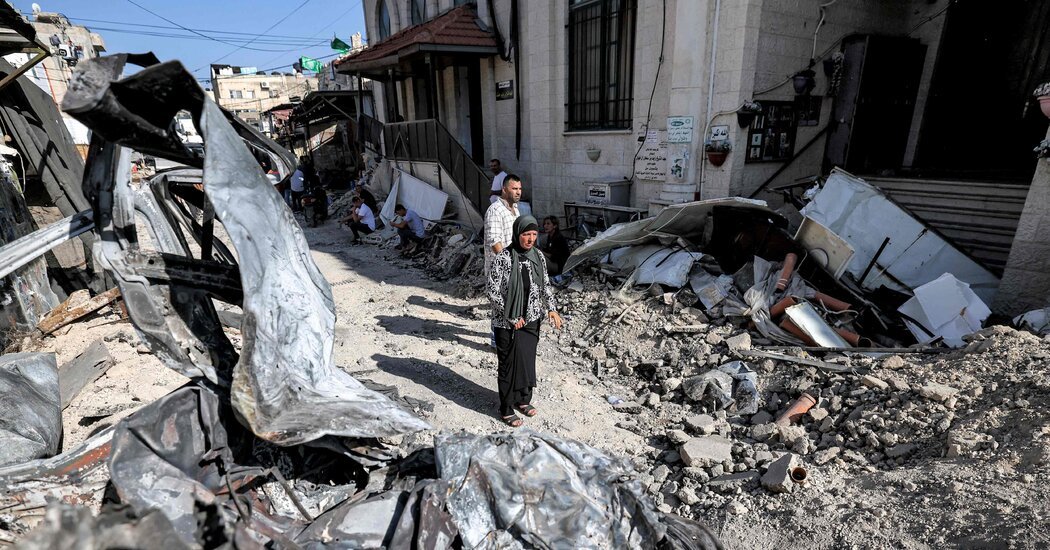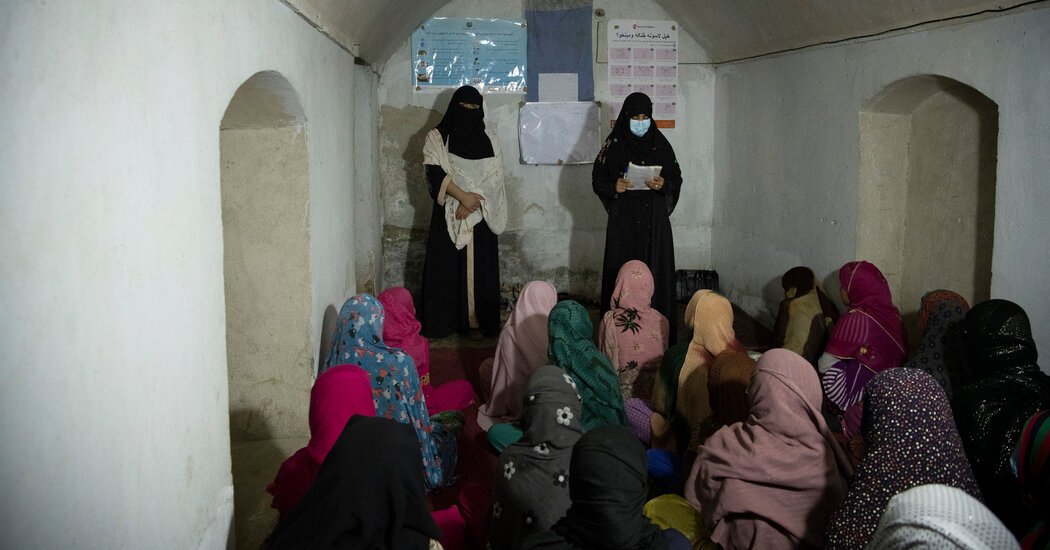Israel ends its West Bank operation
Israel’s military said yesterday that it had withdrawn from the occupied West Bank city of Jenin after a large-scale incursion that killed at least 12 Palestinians, left one Israeli soldier dead and sent thousands fleeing from their homes over the past two days.
Palestinians in Jenin joined a mass funeral yesterday, broadcast live on local television, which honored those killed. Scores of residents returned to the refugee camp in Jenin to find damaged cars and homes, as well as roads torn up by Israeli bulldozers.
Even though the operation has ended, it has almost certainly not quashed the unrest in Jenin, which had been at the center of escalating tensions and violence in the year leading up to the incursion. Both Israelis and Palestinians said that the armed groups, which were targeted in the raid, would quickly rebuild and that Israeli soldiers would probably be back soon.
Outcome: The Israeli military declared the raid a success, saying soldiers dismantled laboratories for manufacturing explosives and removed weapons. But analysts said the operation lacked any deeper strategy and could incite more violence.
Palestinian perspective: Palestinian analysts said that public sentiment was heavily on the side of the armed groups in Jenin and that the Israeli operation was likely to spur more revenge attacks rather than bring calm.
The underlying sources of Palestinian anger also endure, including the West Bank occupation, the continued encroachment by Jewish settlements and a lack of economic opportunity.
For more: Young Palestinians drawn into the struggle against Israel are writing farewell messages to their families. “Don’t cry,” one 14-year-old wrote to his mother before he was killed. “And forgive me for every mistake I made.”
In China, floods have already displaced more than 20,000 people, according to forecasts and local news reports. State media reported that floods killed 15 people in the southwestern city of Chongqing. And news footage showed rescuers in the central province of Henan freeing people from a car that had been caught in a rushing river.
In southwestern Japan, heavy rain over the weekend inundated homes and left at least one person dead. And officials in Phnom Penh, the capital of Cambodia, said that heavy rainfall there on Monday was the most that the city had received in three years.
What’s next: More bad weather may be on the way. The World Meteorological Organization said this week that El Niño, a cyclical climate pattern that warms Pacific Ocean surface temperatures, had formed for the first time in seven years.
The agency said El Niño would likely combine with human-caused warming to fuel more heat waves and disruptive weather worldwide this year.
A hidden life of dissent in China?
It wasn’t as if Bei Zhenying didn’t know that her husband had secrets. He was brilliant, proudly nonconformist and intensely private.
But after the police stormed into the couple’s apartment and took him away, what she learned over the following months was more than a personal secret. She now believes her husband, Ruan Xiaohuan, may have been the anonymous dissident behind Program Think, one of the most mysterious blogs on the Chinese internet, which was critical of the government and evaded the surveillance state for 12 years, a seemingly unthinkable feat.
But on May 9, 2021, the blog went silent. The next day, Ruan was taken away.
Analysis: Whether Ruan was Program Think is virtually impossible to confirm. Either way, their fates are part of the same story, about the drastic degrees of subterfuge Chinese citizens must take to offer dissenting opinions under Xi Jinping, China’s president. They ultimately may also point to the near impossibility of doing so in an ever-expanding surveillance state.
THE LATEST NEWS
Around the World
The Russian soldier was captured only days after arriving on the frontline in eastern Ukraine. He was an inmate before he joined the fight, which he saw as a way to make money and restart his life.
He told my colleagues — in a rare conversation with a prisoner of war — that he was just told to dig trenches, working on meager rations. “We thought we were going to be sent to work,” he said, “but they just sent us to die.”
A Wham! documentary
Remember Wham!? In 1984, the group released the infectious pop anthem “Wake Me Up Before You Go-Go.” The music video, sung by the band’s heartthrob frontmen, was an instant hit.
Those frontmen — George Michael and Andrew Ridgeley — are now the subject of a documentary on Netflix. The film, “Wham!,” is directed like a power-pop video and it charts the band’s short career in the 1980s. (Unlike bands that split acrimoniously, Wham! didn’t have a rise and fall, the film’s director said: “It was just a rise and they called it a day.”)
The film, which incorporates archival footage and pictures from scrapbooks kept by Ridgeley’s mother, also explores a groundbreaking moment in pop history: the band’s 1985 premiere in China, when Wham! became the first Western pop group to perform in the country. Read our review.





